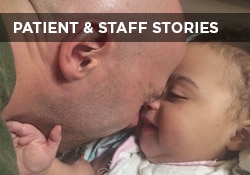This website uses cookies so that we can provide you with the best user experience possible. Cookie information is stored in your browser and performs functions such as recognising you when you return to our website and helping our team to understand which sections of the website you find most interesting and useful.

Susan E. Mazer, Ph.D. Blog
Thoughts and ideas on healthcare
Hi, and welcome to my blog! I'm Susan E. Mazer -- a knowledge expert and thought leader on how the environment of care impacts the patient experience. Topics I write about include safety, satisfaction, hospital noise, nursing, care at the bedside, and much more.
The Patient Experience is Not About Obamacare
January 13, 2017
 As many of us struggle with the uncertainty in the U.S. healthcare system, it’s important to realize that the patient experience is not about the system.
As many of us struggle with the uncertainty in the U.S. healthcare system, it’s important to realize that the patient experience is not about the system.
It is about human beings living through health events, concerned about their families, and about the caregivers who interact with them.
The patient experience is about how medical and nursing teams take on the responsibility of caring for their patients. Because no matter what, our humanity still meets at the bedside.
The Patient Experience Knows No Political View
When Florence Nightingale took on the British Army Hospitals, the fact that she was the first woman to ever be part of the British Military was irrelevant to her. She knew patients were dying needlessly and she was driven to stop it.
In the Middle East where multiple conflicts exist, medical and nursing teams shed their political concerns and take on human concerns.
Suffering casualties in Syria, the Sudan, and other places of conflict, Doctors Without Borders has only reluctantly left these places where it was most needed.
The Patient Experience is a Human Experience
At its core, the patient experience is a human experience and experience of being human. It knows no system or political view.
It only knows the ethical, compassionate, and skilled practices provided to patients when they most need it. It knows only the relationships that make patients feel safe.
If we get caught up in the system, it is not difficult to put the patient behind the demands of the system. But, to experience caring and compassion, patients must be placed first.
How can front-line caregivers do this? First, be aware of what motivates you. Understand that the ratings or scores the hospital receives and may be different than your own experience.
Respect your own drive for excellence and your own need for compassion and empathy. Above all, use everything in your power to deliver that same excellence and compassion to your patients and colleagues.
P.S. If you like this post, please do me a favor and share on LinkedIn, Twitter, Facebook, etc. Also to get automatic notices when a new post is published, subscribe (upper right). No spam – just great content. Thanks!










